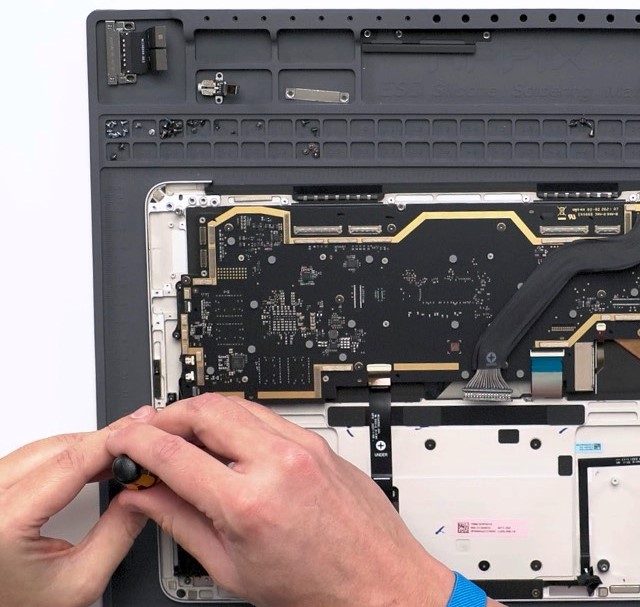SMEs should lead voter turnout in local elections
New Zealand’s SMEs are primed to exercise their democratic rights over the coming weeks, with more than nine-in-10 surveyed saying they plan to vote in the upcoming local elections. While overall […]
New Zealand’s SMEs are primed to exercise their democratic rights over the coming weeks, with more than nine-in-10 surveyed saying they plan to vote in the upcoming local elections.
While overall voter turnout in the 2019 local elections reached 42 percent, MYOB’s latest SME Snapshot – a survey of more than 570 SMEs across the country – found that 93 percent of SME owners and decision-makers plan to vote this year, with many recognising the influence local government has over the future of their community.
More than a quarter of SMEs surveyed said they feel local government has significant decision-making power when it comes to ‘making big decisions and executing plans’ in their local area, while 41 percent agreed they had some power over decision-making.
Jo Tozer, MYOB’s Head of Go-to-Market, explains that with SMEs at the heart of local communities, they often feel the impacts of local decision-making more directly.
“It’s not unusual for SME owners to be more involved in their local area. They feel passionately about what changes and improvements will not only benefit businesses, but their community as a whole. This election will be important to them, and with a heightened awareness of the outcomes and decisions local councils are responsible for, it’s clear they’re ready to have their say on who they feel should be taking the lead,” says Jo.
Connecting with council
When it comes to how connected SMEs are with their local council, insights from MYOB’s Snapshot showed a relatively even split. More than a third (37 percent) of business owners and decision-makers polled say they feel connected to their local council, while 32 percent say they feel disconnected. The remainder feel neither.
In terms of what’s driving the sentiment among those feeling disconnected, top responses showed this is due to: local council not engaging with them, feeling there is no action being taken after they’ve contacted the council about something, and not being kept up-to-date on work that might impact their business.
Looking more specifically at the relationship between local council and SMEs, when asked if they believe their local council is connected to or understands business, encouragingly most (40 percent) SMEs said yes – their local council is connected to or understands business, while 37 percent disagreed, believing their local council is disconnected from business.
“The past couple of years have seen communities across the country come together to support each other and to support local business,” says Jo Tozer. “As they would hope to get from any elected official, SMEs want to see a level of understanding which will translate into positive action. Ultimately, it’s about ensuring decisions take into account the impacts to business when considering the overarching effects of any change on the wider community.”
Questioned on whether their local councillors make an effort to get the views of the business community, most SMEs surveyed (39 percent) believe they do make an effort, just over a quarter (27 percent) feel they don’t make much of an effort to get the views of the local business community, while one-in-10 said they make no effort.
Local council performance and SME priorities
Despite most SMEs feeling their council is connected to the local business community, only 16 percent of business owners and decision-makers surveyed believe council support for small business is better now than it was three years ago, while most (45 percent) believe there’s been no change and a third believe it’s worse.
For those about to come into local power, however, SMEs are clear with what areas they’d like to see prioritised for further action over the next three years.
Top of the list is roading, with more than half (58 percent) saying they’d like this to be a priority, followed by infrastructure (55 percent), water and wastewater management (44 percent), and public transport services (37 percent).
“While the priority areas SMEs would like to see more action around appear to be focused more on broader societal needs, the knock-on effects that investment in these areas would have on the business community will certainly be a consideration,” explains Jo.
“We also know that when it comes to what most influences who they will vote for, it’s not just about business. The majority are looking for a candidate whose values they feel align with their own, and more than half of SME owners and decision-makers say they research the candidates and vote for who they think will make the most positive difference in their community.”
Opinions on headline issues
While many SMEs want to see action on water and wastewater management, a majority (57 percent) say they ‘disagree’ with the Three Waters reforms, while a quarter (25 percent) are unsure and 18 percen say they ‘agree’.
As far as changes to the structure of local government go, when asked whether local councils in major metropolitan areas should amalgamate into super cities, nearly half (48 percent) of SMEs polled said ‘no’, while 27 percent said ‘yes’ and a quarter are unsure.






